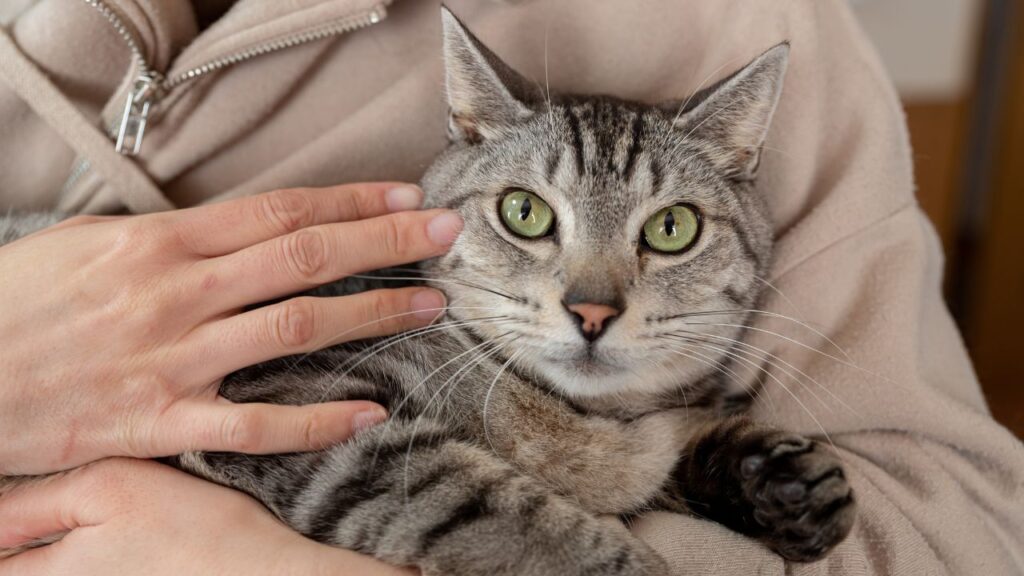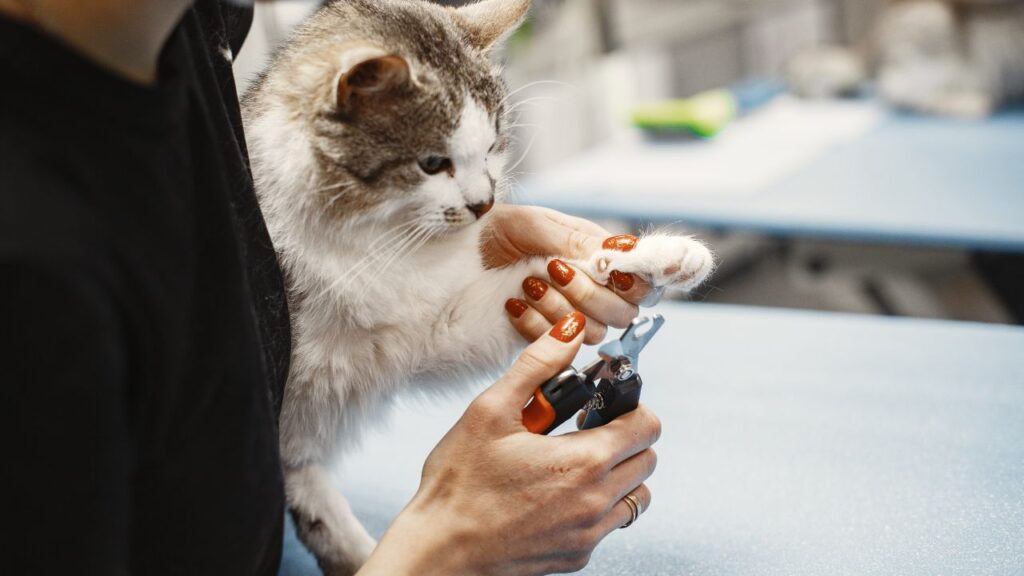Have you ever struggled to groom your cat, only to be met with resistance and fur flying everywhere? How can I make my cat enjoy grooming? is a question that many cat owners grapple with. Grooming is essential for your cat’s health and well-being, but it doesn’t have to be a stressful experience for either of you. With the right approach, you can turn grooming time into a pleasant bonding session that both you and your feline friend look forward to.
Contents
- 1 Understanding the Importance of Grooming
- 2 Creating a Positive Grooming Environment
- 3 Techniques to Make Grooming Enjoyable
- 4 Tailoring Grooming to Different Cat Breeds
- 5 Building a Bond Through Grooming
- 6 Addressing Common Grooming Challenges
- 7 Incorporating Grooming into Your Cat’s Routine
- 8 Utilizing Professional Grooming Services
- 9 Frequently Asked Questions (FAQs)
- 10 Conclusion: How Can I Make My Cat Enjoy Grooming?
Understanding the Importance of Grooming
Why Is Grooming Essential for Cats?
Grooming is a natural behavior for cats, helping them maintain their coat, regulate body temperature, and reduce stress. Regular grooming can prevent matting, reduce shedding, and minimize the risk of hairballs. Additionally, it allows you to check for any skin issues, parasites, or abnormalities that may require veterinary attention.
The Challenges of Grooming Cats
Despite its benefits, grooming can be a challenge due to cats’ independent nature and sensitivity to touch. Some cats may associate grooming with negative experiences, leading to resistance and anxiety. Understanding these challenges is the first step in making grooming an enjoyable activity for your cat.
Creating a Positive Grooming Environment
Choose the Right Time and Place
Timing and setting play a crucial role in your cat’s grooming experience. Select a calm and quiet time when your cat is relaxed, such as after a meal or a nap. Ensure the grooming area is comfortable, well-lit, and free from distractions.
Gather the Right Tools
Having the appropriate grooming tools can make the process smoother and more enjoyable for both you and your cat. Here are some essential tools to consider:
- Brushes and Combs: Choose brushes that suit your cat’s coat type. Slicker brushes are ideal for removing loose fur from long-haired breeds, while rubber brushes work well for short-haired cats.
- Deshedding Tools: Tools like the Furminator can effectively reduce shedding by removing excess undercoat hair.
- Nail Clippers: Regular nail trimming prevents overgrowth and reduces the risk of scratching.
- Grooming Gloves: These gloves allow you to pet your cat while simultaneously removing loose fur.
Create a Routine
Establishing a consistent grooming routine helps your cat become accustomed to the process. Start with short grooming sessions and gradually increase the duration as your cat becomes more comfortable. Consistency and patience are key to building trust and making grooming a positive experience.
Techniques to Make Grooming Enjoyable
Use Positive Reinforcement
Positive reinforcement can transform grooming from a stressful task into a rewarding experience. Reward your cat with treats, praise, or gentle petting during and after grooming sessions. This association helps your cat develop a positive attitude toward grooming.

Gentle Handling
Handle your cat gently and with care to minimize discomfort. Avoid tugging or pulling on the fur, and be mindful of sensitive areas like the belly and paws. Pay attention to your cat’s body language and adjust your approach accordingly to ensure a stress-free experience.
Incorporate Play
Incorporating play into grooming can make the process more enjoyable. Use interactive toys or engage in gentle play breaks to keep your cat entertained and distracted from the grooming process.
Start Slow
Introduce grooming gradually, especially if your cat is not accustomed to it. Begin with short sessions focused on areas your cat is comfortable with, such as the head or back. Slowly expand to other areas as your cat becomes more relaxed and cooperative.
Tailoring Grooming to Different Cat Breeds
Short-Haired Cats
Short-haired cats generally require less grooming, but regular brushing helps remove loose fur and reduce shedding. Use a rubber brush or a bristle brush to keep their coat smooth and shiny.
Long-Haired Cats
Long-haired breeds like Persians and Maine Coons need more frequent grooming to prevent matting and tangles. Daily brushing with a slicker brush or a comb is essential to maintain their beautiful coats.
Hairless Cats
Hairless cats still require regular grooming to keep their skin healthy. Use a soft cloth or a gentle brush to remove any loose skin cells and maintain cleanliness.
Grooming Needs by Cat Breed
| Breed | Coat Type | Grooming Frequency | Special Care Needs |
|---|---|---|---|
| Persian | Long, dense | Daily | Prevent matting and tangles |
| Siamese | Short, fine | Weekly | Minimal grooming required |
| Maine Coon | Long, thick | Daily | Regular brushing essential |
| Sphynx | Hairless | Weekly skin cleaning | Moisturize skin regularly |
| British Shorthair | Short, dense | Weekly | Maintain coat shine |
Choose grooming tools and routines based on your cat’s specific breed and coat type to ensure effective and enjoyable grooming sessions.
Building a Bond Through Grooming
Understanding Your Cat’s Preferences
Every cat is unique, with different preferences for grooming. Pay attention to your cat’s reactions to various tools and techniques. Some cats may prefer soft brushes, while others may enjoy the sensation of grooming gloves. Tailor your approach based on your cat’s preferences to enhance their grooming experience.

Spending Quality Time
Grooming is not just about maintaining your cat’s coat; it’s also an opportunity to strengthen your bond. Use this time to connect with your cat, offering gentle strokes and soothing words. This positive interaction fosters trust and deepens your relationship.
Making Grooming Fun
Incorporate elements of fun into grooming sessions. Sing a soft tune, talk to your cat in a calming voice, or use toys to keep them entertained. Making grooming enjoyable helps your cat associate the activity with positive experiences.
Addressing Common Grooming Challenges
Dealing with Resistance
If your cat resists grooming, remain patient and calm. Avoid forcing the process, as this can create negative associations. Instead, take breaks and try again later. Gradually increase the duration of grooming sessions as your cat becomes more comfortable.
Managing Shedding
Regular grooming helps manage shedding by removing loose fur before it spreads around your home. Use deshedding tools and brushes designed to capture and remove excess hair effectively.
Preventing Matting
Matting can be uncomfortable and painful for your cat. Regular brushing prevents tangles and mats from forming. For long-haired breeds, consider professional grooming to manage their dense coats effectively.
Handling Sensitive Areas
Be mindful of sensitive areas like the belly, paws, and tail. Use a gentle touch and avoid applying too much pressure in these regions. If your cat shows signs of discomfort, focus on more tolerant areas and gradually introduce grooming to sensitive spots.
Incorporating Grooming into Your Cat’s Routine
Morning and Evening Sessions
Integrate grooming into your cat’s daily routine by scheduling sessions in the morning and evening. Consistent grooming times help establish a habit and make the process more predictable and less stressful for your cat.
Special Grooming Days
Designate specific days for more intensive grooming tasks, such as nail trimming or thorough coat brushing. Spreading out grooming tasks prevents overwhelming your cat and ensures comprehensive care.
Seasonal Grooming
Adjust your grooming routine based on seasonal changes. During shedding seasons, increase the frequency of brushing to manage excess fur. In colder months, ensure your cat’s coat remains healthy and free from mats.
Utilizing Professional Grooming Services
When to Seek Professional Help
Professional groomers can provide specialized care that might be challenging to perform at home. Consider professional grooming if your cat has a particularly dense coat, struggles with grooming, or requires specialized treatments.
Benefits of Professional Grooming
- Expertise: Professional groomers have the skills and experience to handle different coat types and grooming challenges.
- Comprehensive Care: Services may include bathing, trimming, nail clipping, and skin treatments, ensuring your cat receives thorough care.
- Stress Reduction: Professional groomers can manage grooming tasks efficiently, reducing stress for both you and your cat.
Choosing the Right Groomer
Select a groomer who has experience with your cat’s breed and temperament. Look for groomers who use gentle techniques and provide a calm environment to ensure a positive experience for your cat.
Frequently Asked Questions (FAQs)
How often should I groom my cat?
The frequency of grooming depends on your cat’s coat type and shedding patterns. Short-haired cats may require weekly brushing, while long-haired breeds benefit from daily grooming to prevent matting and excessive shedding.
What if my cat dislikes being groomed?
If your cat resists grooming, start slowly with short, gentle sessions. Use positive reinforcement and make the experience as pleasant as possible. If resistance persists, consult a professional groomer or your veterinarian for additional strategies.
Are there specific grooming tools recommended for cats?
Yes, the best grooming tools depend on your cat’s coat type. Slicker brushes and deshedding tools like the Furminator are excellent for long-haired cats, while rubber brushes and grooming gloves work well for short-haired breeds.
Can grooming help with my cat’s health?
Absolutely. Regular grooming helps maintain a healthy coat, reduces shedding and hairballs, and allows you to monitor your cat’s skin and overall health for any abnormalities.
How can I make grooming a bonding experience?
Use positive reinforcement, gentle handling, and make the process enjoyable with treats and praise. Spend quality time with your cat during grooming to strengthen your bond and create a positive association with the activity.
Conclusion: How Can I Make My Cat Enjoy Grooming?
How can I make my cat enjoy grooming? By creating a positive environment, using the right tools, and incorporating gentle, consistent techniques, grooming can become a pleasurable activity for both you and your cat. Understanding your cat’s unique preferences and needs is essential to transforming grooming from a dreaded chore into a cherished bonding experience. Whether you have a short-haired, long-haired, or hairless cat, these tips and strategies will help ensure that grooming time is enjoyable, stress-free, and beneficial for your feline friend.

